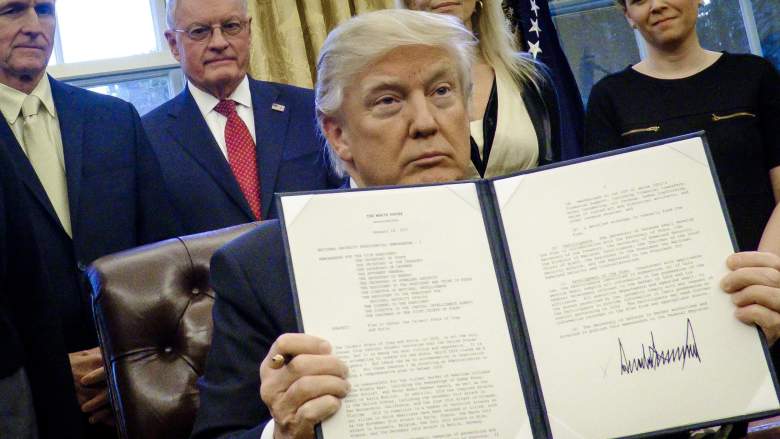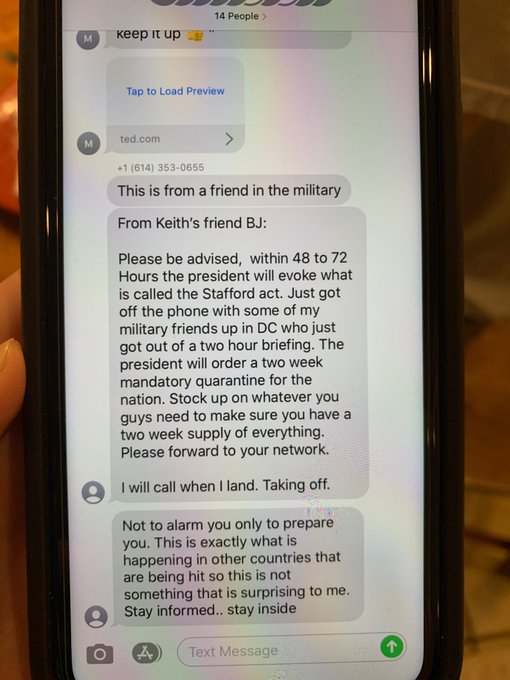
Getty President Donald Trump holds up one of the executive actions that he signed in the Oval Office on January 28, 2017 in Washington, DC. The actions outline a reorganization of the National Security Council.
A lot has changed in the past week in the United States. Sports leagues have been suspended, the U.S. has restricted entry from dozens of countries and many states have enacted public gathering measures in an effort to combat the COVID-19 coronavirus. However, a lot of misinformation has also been shared.
The National Security Council (NSC) has confirmed that text message rumors circulating about a national quarantine and lockdown are false. With the spread of the coronavirus affecting Americans all across the country, the NSC has reminded individuals to follow the CDC for the latest information on the virus.
Here is the tweet from the NSC confirming the information:
The NSC’s tweet reads, “Text message rumors of a national #quarantine are FAKE. There is no national lockdown. [The CDC] has and will continue to post the latest guidance on [COVID-19 coronavirus].”
There Has Been Confusion Online About National Quarantine Text Messages
It appears that a text message from a “friend in the military” has been circulating. The message is that within 2 to 3 days, President Trump will invoke the Stafford Act and order a national quarantine for two weeks. It asks everyone to stock up on supplies.
Trump has already invoked the Stafford Act for the coronavirus response, declaring a nationwide emergency on March 13. This allows the $54 billion in the Federal Emergency Management Agency’s disaster relief fund to be available to states and cities across the U.S. to respond to the pandemic. However, Trump’s invocation did not include a national lockdown or quarantine.
Some Twitter users have asked for validation of the text message, or simply shared it as a warning to others.
On March 15, the CDC Recommended Strict Public Gathering Guidelines
The CDC recommended that public gatherings of more than 50 people should be postponed or canceled for at least eight weeks.
The CDC stated, “Large events and mass gatherings can contribute to the spread of COVID-19 in the United States via travelers who attend these events and introduce the virus to new communities.” It provided examples of these events and gatherings, such as weddings, sporting events, concerts and business conferences. Schools and businesses are not included.
The organization reiterated that its guidelines are not intended to replace local public health officials’ guidance. If events do go ahead, the CDC recommends that they should follow their advice “for protecting vulnerable populations, hand hygiene, and social distancing.”
Trump’s March 13 national emergency declaration gave the president the authority to waive certain laws and access funds to better respond to the pandemic. According to the Voice of America, declaring a national emergency can give a president immense power in the name of national security. For example, a “draconian” measure a president could take under their emergency authority would be to “invoke a 1941 law to shut down the internet.”
Some national emergencies that have been invoked by presidents in the past are the Japanese internment camps in World War II and the increase in government surveillance under George W. Bush after the 9/11 attacks.
READ NEXT: Connor Reed: Coronavirus Survivor Shares What It’s Like to Have COVID-19
